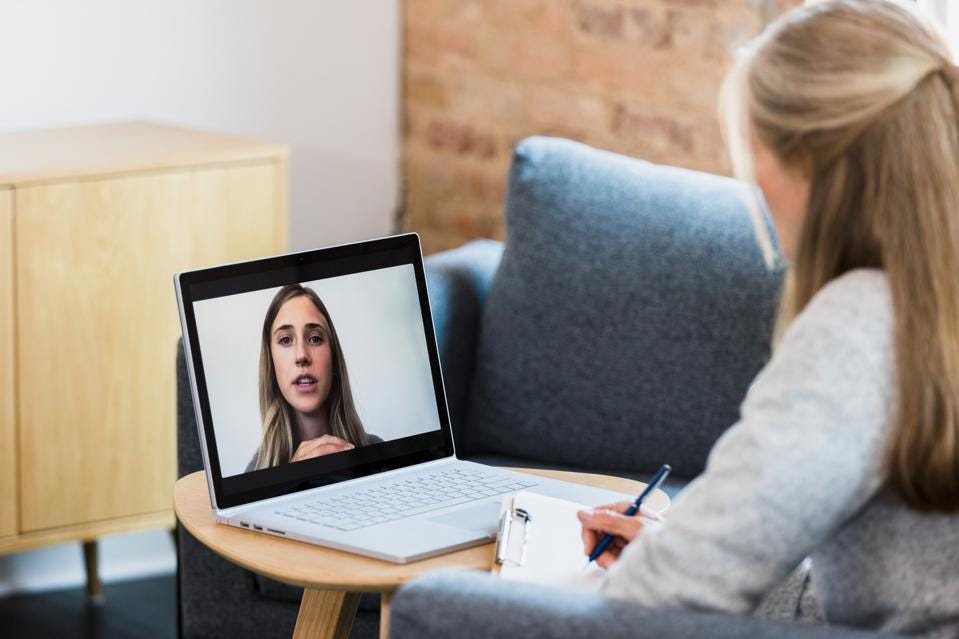You may want to find out if ADHD therapy is available for someone in your family who has been diagnosed with ADHD.
According to the National Institute of Mental Health, “Attention-deficit/hyperactivity disorder (ADHD) is a brain disorder marked by an ongoing pattern of inattention and/or hyperactivity-impulsivity that interferes with functioning or development.”
ADHD can often be described as hyperactivity, impulsivity or inability to focus. A child or adult diagnosed with ADHD may have trouble staying on task, be more likely to move inappropriately, and/or be prone to act without thinking.
ADHD symptoms can be seen in many children and adults, and they may appear at different times. However, ADHD is a condition that can affect the ability to perform daily tasks and activities.
You or your child may be suffering from ADHD symptoms. We recommend that you request an evaluation with one of our professional ADHD therapists. There are many treatment options that can be used to alleviate symptoms if you have a clear diagnosis.
There are three types of ADHD treatment that are most common:
- ADHD treatment
- Medication
- Accommodations at school
According to the CDC, behavior therapy and medication are both good options for children aged 6 and over. Behavior therapy is the best treatment for ADHD in children younger than 6 years old. Before medication, it is recommended that ADHD sufferers seek out behavior therapy.
What’s ADHD therapy?
Behavior therapy is about helping individuals change their behavior. This therapy teaches positive behavior and coping skills to help reduce or eliminate disruptive behaviors at school, work, or in intimate relationships. Individuals are often taught skills that can be used to manage and control symptoms. While some therapies are focused on organizational strategies, others address disruptive patterns and behaviors that can lead to difficulty or trouble making friends.
Anxiety counselling is a form of therapy that helps individuals understand and manage their symptoms of anxiety. This type of therapy is typically conducted by a trained mental health professional and can be done on an individual or group basis. Some common techniques used in anxiety counselling include cognitive-behavioral therapy, relaxation techniques, and exposure therapy. Through this process, people with anxiety can learn to identify triggers, develop coping mechanisms, and improve their overall well-being.
ADHD therapy can be recommended to both the child and the parent. This is so that both parents learn the techniques and are available for the child’s at-home treatment. Both the child and parent will be supported by the therapist to replace dysfunctional or unhelpful behaviors. This therapy is between the parent and child. It teaches parents how to use positive reinforcement efficiently and impose consistent consequences for children who do not comply. A good therapy program can result in better behavior for children, less tantrums, better communication with the family, and less stress at school and home.
When can medication be incorporated?
Under the guidance of a doctor, medication is sometimes added to the treatment plan. Some people are able to live without medication. Therapy alone can make a significant difference in their ability to succeed at school and at home. Some people benefit from both medication and therapy. However, medication is another way to treat ADHD symptoms. ADHD medications approved by FDA include stimulants as well as non-stimulants. If you’re thinking of moving into online counselling or are thinking about taking therapy for the first time in your life, this post will tell you everything you should know about online therapy.
A stimulant is the most commonly prescribed medication for ADHD. For more immediate relief of symptoms, stimulants work faster than non-stimulants. Both stimulants and non-stimulants can be used to decrease disruptive behavior. There is a possibility that multiple medications may be required or explored. Therefore, it is crucial that all parties work together to find the best treatment.
Do I need to talk with my child’s school?
ADHD can lead to difficulty in sitting still, difficulty paying attention and/or trouble controlling impulses. A child with ADHD may struggle to succeed in school because of these issues. If your child has ADHD, it may be helpful for you to speak with your school. You can give your school the following tips:
- Spend some extra time to make sure your child understands the assignment.
- Positive reinforcement is something you should try to do often.
- When possible, reduce the length of assignments such as readings and writings.
- When possible, allow for movement during school hours.
- Distractions should be reduced in the classroom and learning environment.
- The following tips can be used to help parents and individuals with ADHD.
- Establish a routine and organize your life.
- To clearly delineate chores, use checklists
- A planner can be used to aid in remembering homework and assignments.
- To encourage positive behavior, create a reward chart.
- You can limit your choices and control distractions in the home.
- When directing your child, be clear and specific.
- Positive reinforcements and opportunities should be created.
There are many treatment options for ADHD if you or your children have it. Talk to your doctor immediately to get started.

